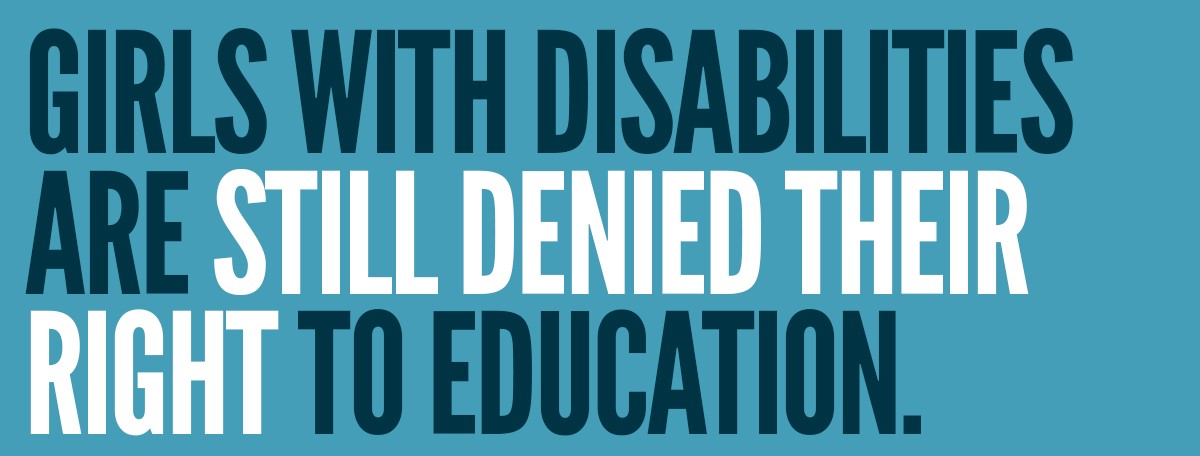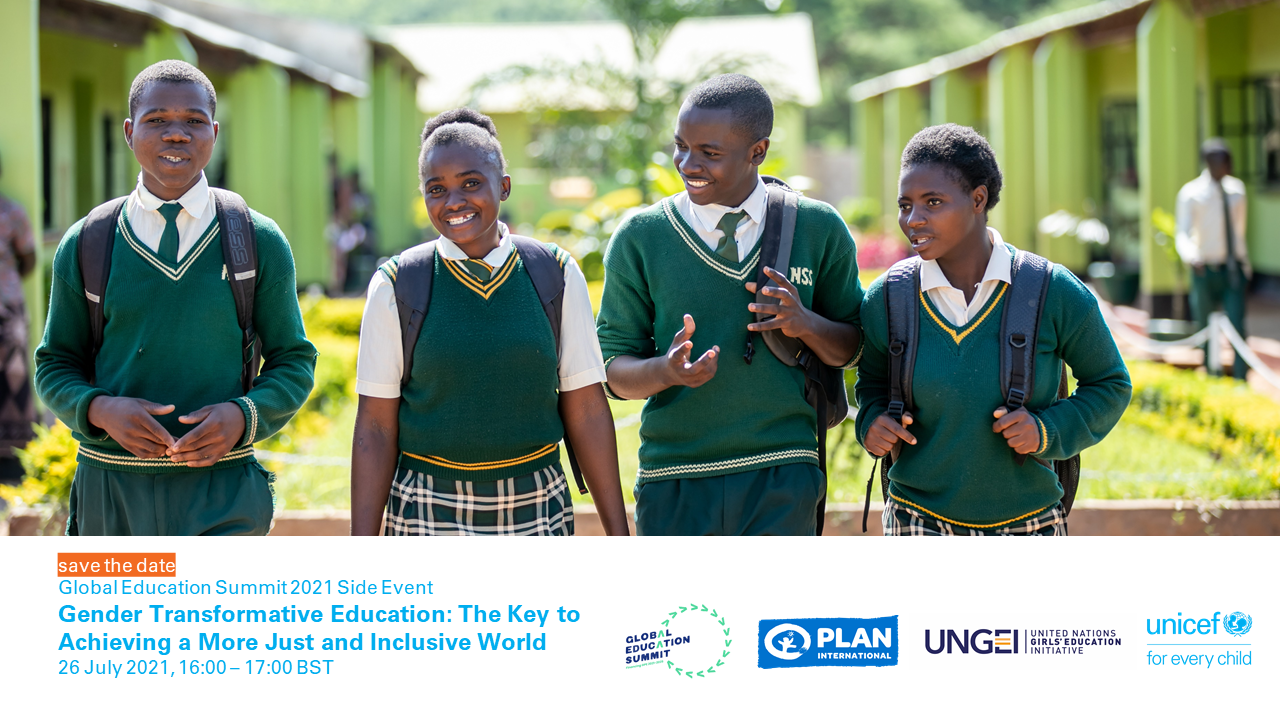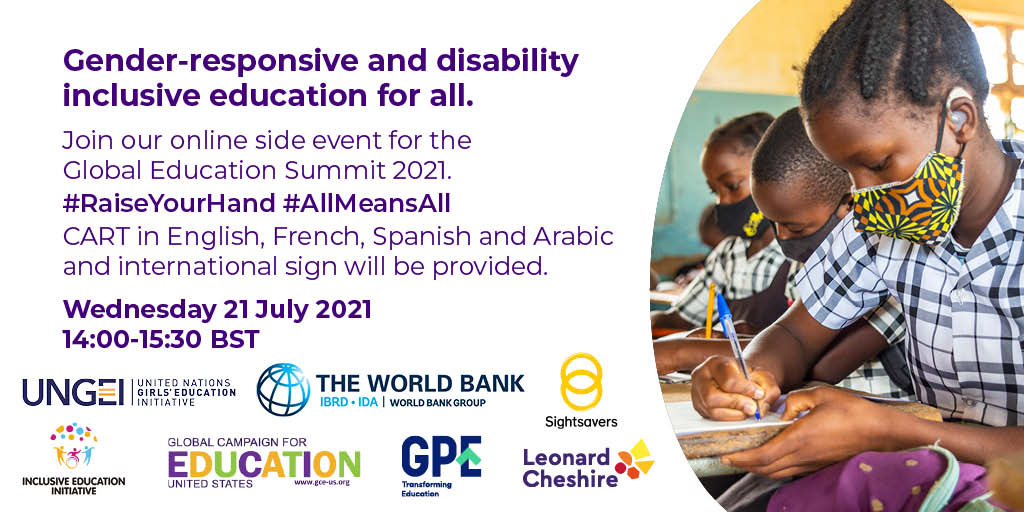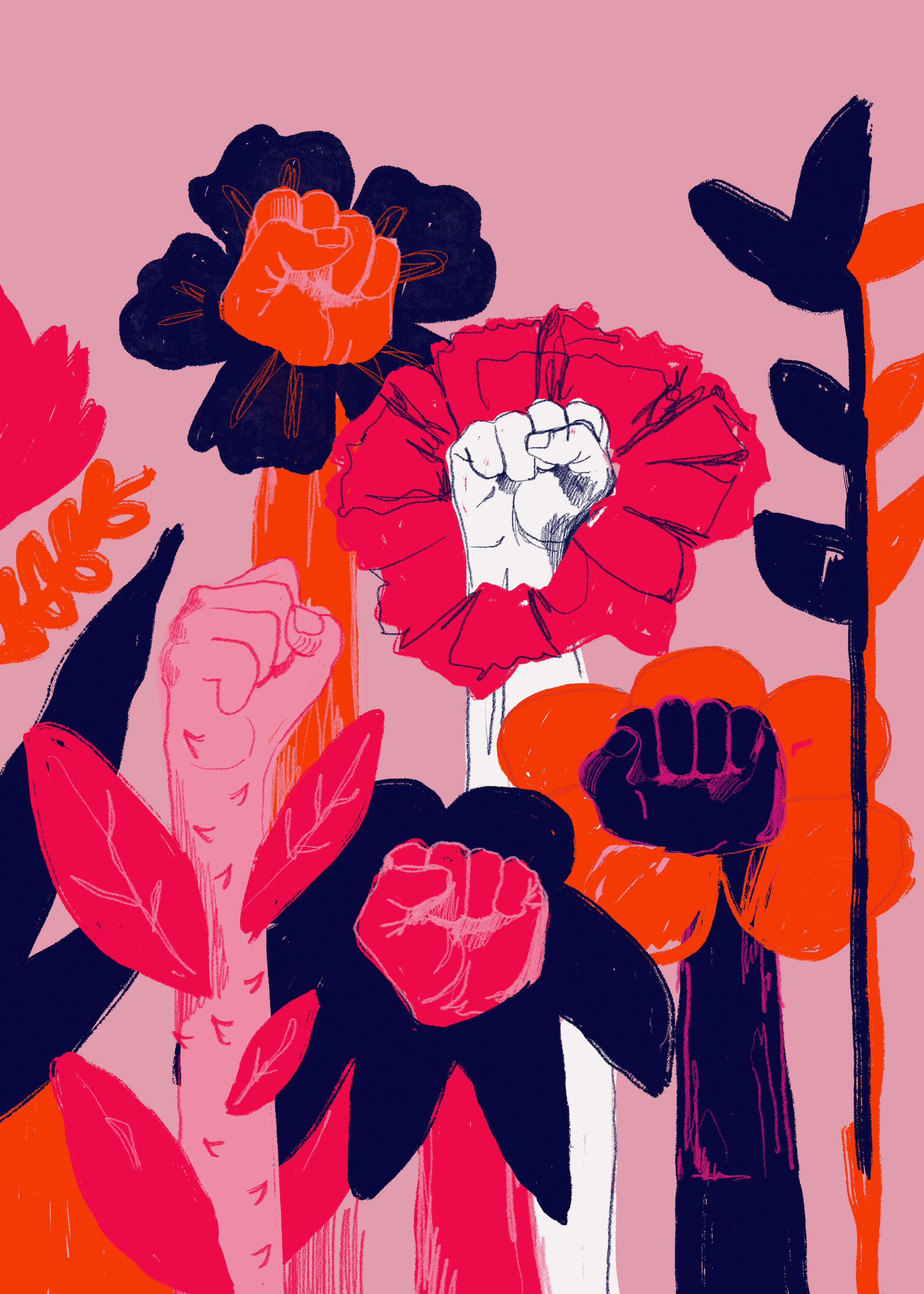Despite significant progress towards our shared 2030 Global Goals Agenda, girls with disabilities are still being denied their right to education. This is a fundamental human right, yet nine out of ten children with disabilities in developing countries are excluded from formal education. In particular, girls with disabilities face significant exclusion from education due to multiple and intersecting forms of discrimination on the basis of gender and disability.

We have just 9 years left to deliver on Sustainable Development Goal (SDG) 4 on quality education for all children everywhere, and SDG5 on gender equality. Girls’ education, especially for the most marginalised girls, is key to COVID-19 recovery and “building back equal” following this unprecedented crisis. 2021 will see countries make new commitments on education and gender equality to achieve SDG4 and SDG5. This year, it is urgent that countries mainstream disability in their education and gender equality strategies, budgets, and frameworks.
Leave no girl with disabilities behind is a new advocacy brief from the UN Girls’ Education Initiative (UNGEI) and Leonard Cheshire, launching today. The brief provides a framework for advocacy on inclusive education for girls with disabilities in particular. An overview of the current status of global education for girls with disabilities identifies the key challenges and barriers to inclusive and gender-responsive education. Case studies from Leonard Cheshire, Humanity and Inclusion, and Sightsavers highlight some promising strategies to overcome these barriers.
The brief concludes with targeted recommendations for governments, ministries and world leaders to rebuild better, fairer, and more inclusive education systems that support all learners, including girls with disabilities. The recommendations focus on five key areas: strengthening education systems for gender equality and inclusion; fostering cross-sectoral collaboration; targeting education financing for equity and inclusion; building back equal following the COVID-19 pandemic; and nurturing youth leadership. As world leaders get ready to meet at the G7 Summit and the GPE Replenishment summit this summer, these recommendations couldn’t be more timely. The recommendations will also be critical in driving meaningful commitments at the 2022 Global Disability Summit.

The voices of women and girls with disabilities from around the world, too often forgotten or ignored, are at the forefront of this advocacy brief. Their lived experiences and recommendations on gender-responsive and inclusive education were documented as part of an advocacy video, also launching today. Through this collective advocacy, we wish to remind world leaders of one crucial and foundational fact: Girls with disabilities have an equal right to education. It’s not enough to just make commitments to improving access to education for girls. More needs to be done to outline how girls with disabilities will specifically be included as part of this.
Especially in the wake of the COVID-19 pandemic, we cannot achieve gender equality and disability justice without putting girls with disabilities at the heart of education policy and financing efforts. As countries around the world develop re-enrollment and recovery strategies, and make new commitments to girls’ education, join our call to action to ensure that no girls with disabilities are left behind:
- Education must be inclusive for all, fostering a greater understanding of intersecting identities and the individuals who hold these identities.
- Education sector policies and plans should be gender-responsive and inclusive.
- Cross-sectoral collaboration must be strengthened in order to overcome the multi-layered barriers to education faced by girls with disabilities, including across health, child protection, and WASH sectors.
- Education financing models should prioritise intersectionality (gender and disability) and commit to supporting gender-responsive and inclusive education.
- Re-enrolment strategies should include specific provisions for girls with disabilities, in recognition of their heightened vulnerability to dropping out following COVID-19 related school closures.
- Increase partnership, meaningful engagement, and funding for youth- and girl-led networks and organisations, and Organisations of Persons with Disabilities (OPDs) working at the intersection of gender equality, education and disability rights.


